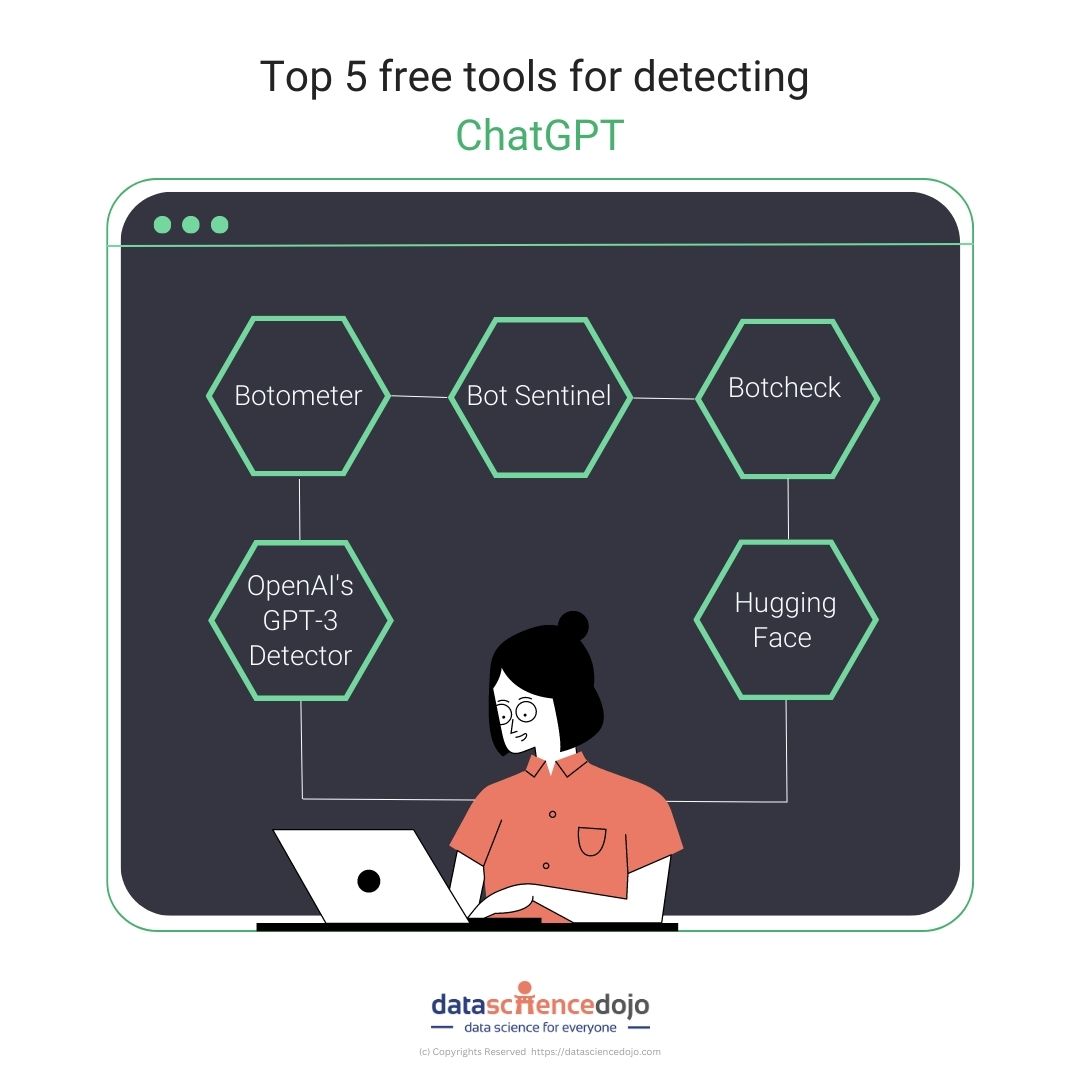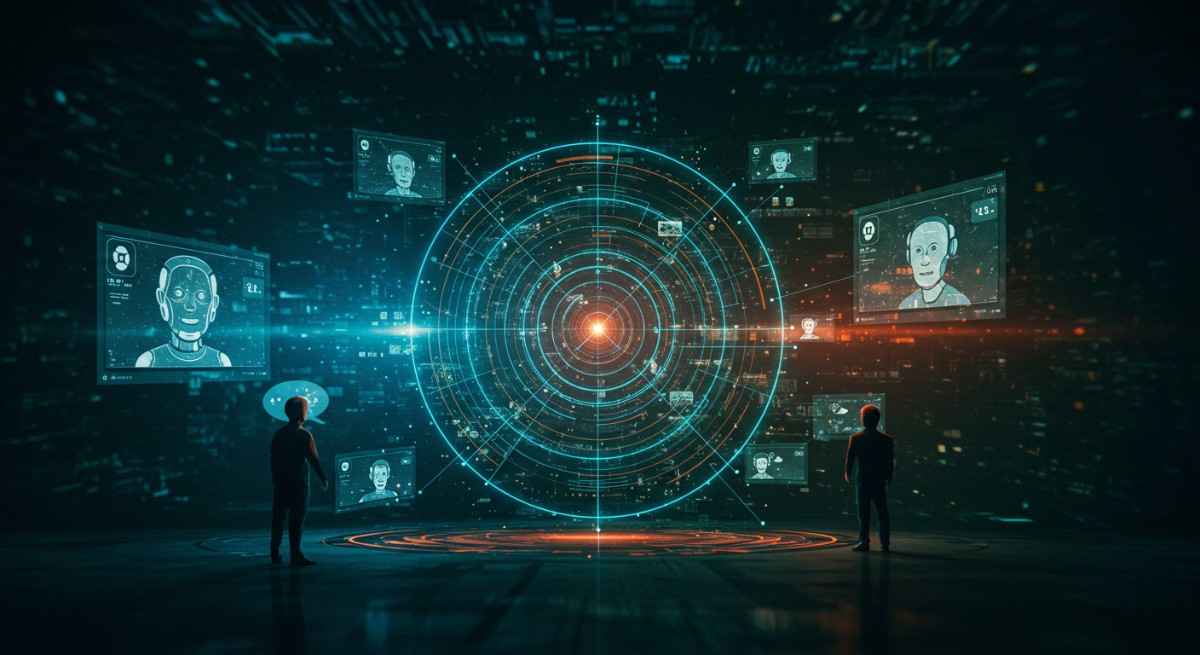Meet ChatGPT, the AI tool that has revolutionized the way people work by enabling the creation of websites, apps, and even novels. However, with its increasing popularity, bad actors have also emerged, using it to cheat on exams and generate fake content.
To help you combat this issue, we’ve compiled a list of five free AI content detectors to verify the authenticity of the content you come across.
For the unversed – What is ChatGPT?
ChatGPT is an artificial intelligence language model developed by OpenAI. It is designed to generate human-like responses to natural language inputs, making it an ideal candidate for chatbot applications. ChatGPT is trained on vast amounts of text data and is capable of understanding and responding to a wide range of topics and questions.
While ChatGPT is a powerful tool, it’s important to be able to distinguish between real and fake chatbots, which is why tools for detecting ChatGPT and other fake chatbots have become increasingly important.
Read more about ChatGPT and how this AI tool is a game changer for businesses.
Overrated or underrated – Is ChatGPT reshaping the world?
ChatGPT, as an advanced language model, is reshaping the world in a number of ways. Here are some of the ways it is making an impact:
- Improving customer service – ChatGPT is being used by companies to improve their customer service by creating chatbots that can provide human-like responses to customer queries. This helps to reduce response times and improve the overall customer experience.
- Revolutionizing language translation – It is being used to improve language translation services by creating chatbots that can translate between languages in real-time, making communication between people who speak different languages easier.
- Advancing healthcare – Chat GPT is being used to create chatbots that can assist healthcare professionals by providing medical advice and answering patient queries.
- Transforming education – The popular AI tool is being used to create chatbots that can assist students with their studies by providing answers to questions and offering personalized feedback.
5 free tools for detecting ChatGPT
As artificial intelligence (AI) continues to advance, the use of chatbots and virtual assistants has become increasingly common. However, with the rise of AI, there has also been an increase in the use of fake chatbots, which can be used to deceive users for fraudulent purposes. As a result, it’s important to be able to detect whether you’re interacting with a real chatbot or a fake one. In this article, we’ll look at five free tools for detecting ChatGPT.

1. Botometer:
Botometer is a free online tool developed by the University of Southern California’s Information Sciences Institute. It uses machine learning algorithms to detect whether a Twitter account is a bot or a human. It considers a range of factors, including the frequency and timing of tweets, the language used in tweets, and the presence of certain hashtags or URLs. Botometer can also detect the likelihood that the bot is using ChatGPT or another language model.
2. Bot Sentinel:
Bot Sentinel is another free online tool that can detect and analyze Twitter accounts that exhibit bot-like behavior. It uses a variety of factors to identify accounts that are likely to be bots, such as the frequency of tweets, the similarity of tweets to other bots, and the use of certain keywords or hashtags. Bot Sentinel can also identify accounts that are likely to be using ChatGPT or other language models.
3. Botcheck.me:
Botcheck.me is a free tool that analyzes Twitter accounts to determine the likelihood that they are bots. It considers a range of factors, such as the frequency and timing of tweets, the similarity of tweets to other bots, and the presence of certain hashtags or URLs. Botcheck.me can also detect whether a bot is using ChatGPT or other language models.
4. OpenAI’s GPT-3 Detector:
OpenAI has developed a tool that can detect whether a given text was generated by their GPT-3 language model or a human. While it’s not specifically designed to detect ChatGPT, it can be useful for identifying text generated by language models. The tool uses a deep neural network to analyze the language in the text and compare it to known patterns of human language and GPT-3-generated language.
5. Hugging Face Transformers:
Hugging Face offers a free, open-source library of natural language processing tools, including several models that can detect language-based chatbots. Their “pipeline” tool can be used to quickly detect whether a given text was generated by ChatGPT or other language models. Hugging Face Transformers is used by researchers, developers, and other professionals working with natural language processing and machine learning.
Why chatbot detectors are essential for professionals?
There are several groups of people who may want chatbot detectors, including:
- Business owners: Business owners who rely on chatbots for customer service may want detectors to ensure that their customers are interacting with a genuine chatbot and not a fake one. This can help to protect their customers from scams or fraud.
- Consumers: Consumers who interact with chatbots may want detectors to protect themselves from fraudulent chatbots or phishing scams. This can help them to avoid sharing personal information with a fake chatbot.
- Researchers: Researchers who are studying chatbots may want detectors to help them identify which chatbots are powered by ChatGPT or other language models. This can help them to understand how language models are being used in chatbot development and how they are being integrated into different applications.
- Developers: Chatbot developers who are working with ChatGPT may want detectors to ensure that their chatbots are providing accurate and reliable responses to users. This can help them to build better chatbots that can provide a more satisfying user experience.
Wrapping up
Love it or hate it – ChatGPT is here to stay. However, with the increasing use of AI in chatbots and virtual assistants, it’s important to be able to detect whether you’re interacting with a real chatbot or a fake one. These five free tools can help you detect ChatGPT and other fake chatbots, helping you to stay safe online.



